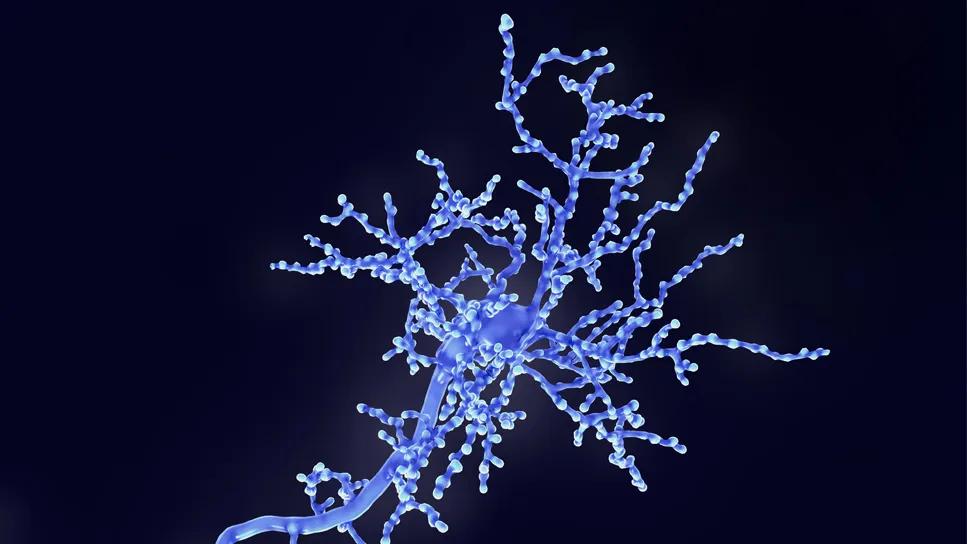Internal award provides funding to cross-disciplinary project

Image content: This image is available to view online.
View image online (https://assets.clevelandclinic.org/transform/998c933f-029c-48de-be63-e83caf4b00f8/network-based-analysis-microglia-1161416478)
Microglia
Chronic alcohol exposure — whether from fetal exposure during development or binge drinking during adolescence and adulthood — impairs brain development and function.
Advertisement
Cleveland Clinic is a non-profit academic medical center. Advertising on our site helps support our mission. We do not endorse non-Cleveland Clinic products or services. Policy
Research suggests that the brain’s resident immune cells (called microglia) play an important role in this harmful process, as they regulate neuronal networks during critical periods of brain development and protect the brain against injury and disease. Additionally, research shows that chronic alcohol exposure damages the barrier cells that line the organs of the digestive system.
As understanding of the microbiome and its importance to overall health has advanced over recent years, researchers from Cleveland Clinic Lerner Research Institute’s Department of Inflammation and Immunity and the Department of Neurosciences wonder if gut-brain interactions may influence microglia’s role in alcohol-related neurotoxicity.
Laura Nagy, PhD, who studies alcohol’s effects on the intestines and innate immune signaling, and Dimitrios Davalos, PhD, who has expertise in neuroinflammation and neurodegeneration, lead the cross-department collaboration.
The team will investigate using preclinical models and imaging technologies developed in Dr. Davalos’ lab how increasing alcohol exposure affects the interactions between microglia and neurons, and leads to neuronal dysfunction.
They will go on to investigate whether preventing alcohol-induced loss of gut integrity using a therapeutic agent previously developed in Dr. Nagy’s lab (hyaluronic acid, also called HA35) can curb microglial activation and subsequent neuroinflammation. They will validate their findings with brain tissue collected from patients with a history of alcohol-related pathologies and stored at Cleveland Clinic.
Advertisement
If the team finds that HA35 does in fact protect the gut and prevents alcohol-related neuroinflammation, there is great hope for rapid translation into clinical trials as HA35 is currently undergoing safety testing in healthy adults.
This project is one of two projects funded by a new internally funded award, called the Co-Laboratories Award. It encourages new, “start-up” collaborations that bring together researchers from different laboratories to investigate and attack disease from many angles, drawing on the unique expertise and innovations that each laboratory has to offer.
The Co-Laboratories Award is important not just because it forges new and otherwise unlikely collaborations between people across Lerner Research Institute, but also because it makes early stage research possible. This seed funding will provide the data these researchers need to secure larger funds from external sources, like foundations and the National Institutes of Health.
Advertisement
Advertisement
First full characterization of kidney microbiome unlocks potential to prevent kidney stones
Researchers identify potential path to retaining chemo sensitivity
Large-scale joint study links elevated TMAO blood levels and chronic kidney disease risk over time
Investigators are developing a deep learning model to predict health outcomes in ICUs.
Preclinical work promises large-scale data with minimal bias to inform development of clinical tests
Cleveland Clinic researchers pursue answers on basic science and clinical fronts
Study suggests sex-specific pathways show potential for sex-specific therapeutic approaches
Cleveland Clinic launches Quantum Innovation Catalyzer Program to help start-up companies access advanced research technology